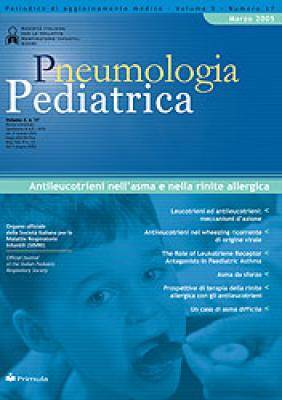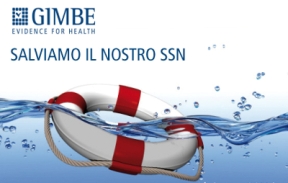Archivio > Vai alle uscite del 2005 > Vai aVolume 5, Numero 17 - Marzo 2005
- Antileucotrieni nell’asma e nella rinite allergica
Prospettive di terapia della rinite allergica con gli antileucotrieni Perspectives of antileukotrienes therapy for allergic rhinitis

Riassunto. La rinite allergica è una malattia infiammatoria delle vie aeree superiori che rappresenta un problema importante sia per i singoli individui che per la società e la sua prevalenza sembra essere in costante aumento. Come per l’asma, così anche nella patogenesi della rinite allergica è stato dimostrato un ruolo dei leucotrieni. Diverse segnalazioni recenti, seppur numericamente ancora limitate, suggeriscono che i farmaci antileucotrienici possono avere un effetto benefico nella rinite allergica, nel complesso solo lievemente inferiore a quello degli antistaminici, ma significativamente inferiore all’azione dei corticosteroidi topici nasali. Inoltre, nonostante gli studi sulla terapia combinata con antileucotriene e antistaminico siano ancora limitati, l’associazione dei due farmaci sembra avere un effetto superiore a quello dei due farmaci usati separatamente e non significativamente diverso da quello dei corticosteroidi topici nasali. Ulteriori studi clinici sono necessari primi di giungere a conclusioni definitive, soprattutto in età pediatrica. Tuttavia i dati finora disponibili suggeriscono l’utilità di aggiungere un farmaco antileucotrienico nel trattamento della rinite allergica qualora la terapia tradizionale non dia risultati soddisfacenti.
Summary. Allergic rhinitis, an inflammatory disease of the upper airways, is an important issue for both the single individuals and society. Its prevalence seems to be constantly increasing. As for asthma, leukotrienes have been shown to be involved also in the pathogenesis of allergic rhinitis. A few recent studies suggest that leukotriene inhibitors may have a beneficial effect on allergic rhinitis, in general just slightly lower than the efficacy of antihistamine drugs, but significantly lower than that of nasal topic corticosteroids. Furthermore, preliminary studies document that the combined use of a leukotriene inhibitor and antihistamine seems to be more effective than the two drugs used separately and as effective as nasal topic corticosteroids. Although further clinical studies are needed, especially on children, before any definite conclusions can be reached, the data available so far suggest that adding a leukotriene inhibitor to the traditional treatment of allergic rhinitis may be an effective choice when the results of the traditional treatment are not satisfactory.






